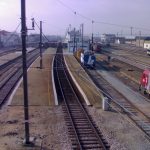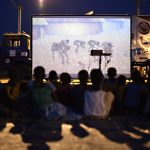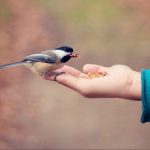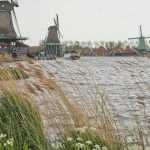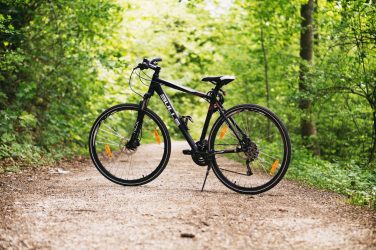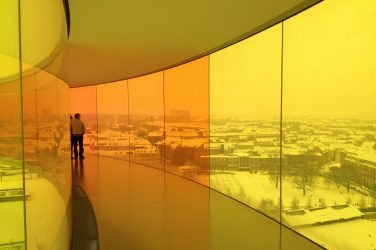Tourism can be transformative – for travellers and destinations alike. E&M‘s Jessica Verheij outlines how we can travel mindfully and ensure that this transformation is a positive one. In times of mandated stay-cations, she reminds us to take a moment to consider the impact of our vacations.
It feels strange to be writing about tourism during times in which a large part of the world population is staying home, airports are abandoned, borders have been closed and Venice has never been so quiet. These are extraordinary times in so many aspects, but I like to believe that when the crisis is over, we will face a time of great opportunities. As we are mostly confined to our homes and limited to short walks to the nearest supermarket, I would like to use this time and space to reflect upon our travel behaviours and the impact they have been having on us and our environment. While obviously putting any public health-related issues first for now, I believe it is worthwhile to pause and think on how we wish to resume our life in post-COVID19 times.
Tourism as a form of empowerment

A couple of days ago, I read an article in The Guardian about how people in Venice are coping with the COVID19 crisis, as their income has mostly vanished. The thousands of tourists that normally invade the city on a daily basis are now nowhere to be seen. Reading the article, I realised how tourism can empower people to earn money and do what they enjoy most; from a craftswoman selling her self-made jewelry to the crowds passing by, to a tour guide who still has plenty of free time to be a painter.
Keeping in mind how tourism can play a role in people’s ability to explore their talents and passions, I am hoping for a more mindful return to travelling and tourism. This implies, first of all, that we, as tourists, make our holiday-decisions wisely and mindfully once we are able to return to our normal busy lives. The following ideas are not just mine: with input from the whole Europe&Me community living in different European cities, we developed a diverse yet generally-applicable guide on what to do and what not to do as a tourist. Although the focus is European, most of the advice applies just as well to other destinations.
Where to sleep
First of all, one needs to have a place to sleep. The advice could be reduced to recommending you to avoid Airbnbs and similar platforms, but this is stating the obvious. In fact, it sounds easier than it might be in reality. As some of the contributions pointed out, it might be really challenging to find a socially-responsible form of accommodation while being on a budget (indeed, social responsibility comes at a cost). If you do decide to rent an apartment, try to make sure it is owned by the person who is renting it out to you. In many cities, real estate is bought up by investors who convert apartments into easy-to-rent short-term stays, disrupting the local housing market while often creating a major nuisance for neighbours. Therefore, try to avoid those typical places where you don’t even have to meet your host and the key will be in a safety box by the door – those places are clearly made for rental platforms, not locals.
On the other hand, B&B’s and hostels often offer great alternatives at a very reasonable price. By staying in this type of place, you contribute to the local economy in a more just and safe way, while enjoying the benefits of well-informed staff and fellow travellers. If you travel off-season, many small hotels may even have special offers and discounts. So invest some time in making a mindful decision on where to stay before booking.
It’s really all about the food
One of the main lessons to be taken away from the contributions we received is that city tourism has a lot of good things to offer: from high-quality museums, to cultural and historical heritage, lively neighbourhoods and… food! Local gastronomy was highlighted consistently. Often cities are great places to enjoy an array of different restaurants, cafés, and pubs. Invest some time in understanding where you want to eat and what type of food you want to try. Make an effort to try out different places in different parts of the city, even when it requires you to travel to less central areas. And make sure to try out the local specialties.
Try to avoid restaurant chains or places similar to the ones you can find in your hometown (unless you are on a budget and that’s your only way to go). Local restaurants, food markets, crowded lunch places – those are the places you want to check out. From my experience in Lisbon, the best local food is to be found in restaurants that look really simple, and sometimes even unappealing, from the outside, yet are full of people inside (note: if a place looks unappealing and empty, it’s probably just not very good). These restaurants do not need to convince anyone with fancy table towels, fresh flowers or hip design – people visit them for the quality of the food.

Getting from A to B
When it comes to moving around in the city, keep in mind these two: public transport and walking. You are on holidays. You are not in a rush, you don’t (shouldn’t) have a strict schedule. Take your time. Public transport may be a challenge, especially when you do not speak the local language. However, at least for what Europe is concerned, it is mostly pretty accessible. Besides, no better way to get to know a city than through its public transport system. It will force you to learn some local words, to get to know the main transit nodes, to engage with fellow passengers and – indeed the biggest challenge of all – find out how to buy a ticket. Don’t perceive it as a waste of time, but instead as part of your local experience. However, if possible, opt for walking. Enjoy the streets, the architecture, the public life and everything you encounter on your way (in fact, this is equally true for your hometown!).
Mindful travelling
Take some time to get to know a bit of the local language, even if only to say hello, goodbye and thank you. It is always worth it. People all over the world appreciate it when you make an effort to engage with them in their local language. See yourself as what you are: a visitor. This means to stay curious towards local culture and experiences, and to be humble.
Some contributions emphasised how travel time can be used to already learn some local words and customs. In that sense, travelling by train can be amazing, not only due to its reduced environmental impact, but also because it provides time to reflect on your journey. Why did you choose this destination? What would you like to learn about? What are you interested in? Which places would you like to visit upon arrival?
Be mindful when travelling
The most important is: be mindful when travelling. While reading about the disappearance of tourists in Venice, it struck me that the stories we usually hear about tourism in cities are mostly negative: the impact on the local housing market, the constant crowd, the environmental impact and so on. Without trying to downplay these very real challenges, I realised that for many people, tourism is also a great way to make a living while being able to do what they love. Just think of all the people whose dream it is to start a B&B in some idyllic place. Our travels can actively contribute to enabling other people to explore their dreams. It really depends on the decisions we take.
If, in times when Corona was really still about the Mexican beer, you used to travel all the time, going from destination to destination, this might be a perfect time to reconsider your travel behaviour. Staying home can give you the peace and tranquility to reflect on how to move forward from here. Make time for your holidays and your travels. Think about the places you want to visit, and why you want to visit them. Not less important, think about the impact you will make during your travel. Consider if your impact is positive or negative and, if negative, try to find ways to work around it. But, regardless of any travel advice, the best advice for now is: stay home!
Cover photo: Frank Vessia (Unsplash), Unsplash licence



